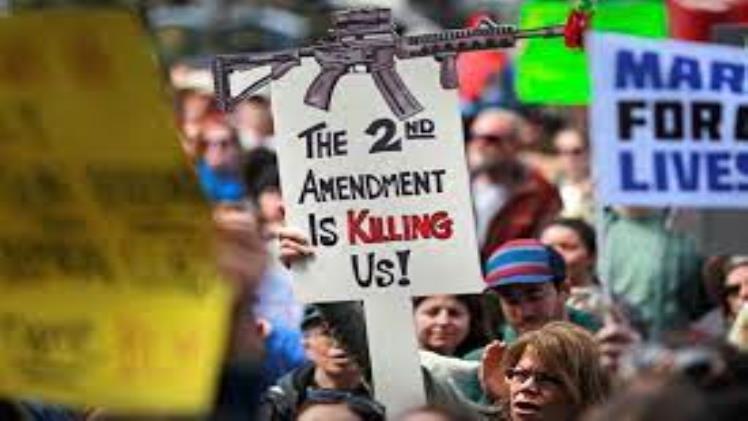The Debate on Gun Control and Second Amendment Rights

Gun control and the right to bear arms remain one of America’s most divisive issues. Recent mass shootings have further fuelled this debate, leading many to call for stricter gun laws in response. But Americans remain divided on whether restricting legal gun ownership will actually lead to fewer shootings – half believe no difference will be made while 49% believe it will reduce shootings overall. A survey released recently by ABC News and Washington Post finds that half of adults believe restricting gun ownership will make no difference while 49% believe it will reduce shootings significantly.
Over one-third of American adults say they own a gun personally, and gun ownership is deeply entrenched in both American culture and political system.
Recent polling indicates that most Americans favor some form of regulation on gun ownership and use. Two thirds believe laws pertaining to firearm sales should be tighter, 11% favor less stringency and 35% want them kept as they are currently.
Though many Americans favor some kind of regulation on firearm sales, their opinions are often shaped by local politics and culture. For instance, while majority support banning assault-style weapons, opinions differ on whether this should apply only to private sellers or also retailers such as gun shops.
Political differences could once again play a role in the Supreme Court’s upcoming ruling on New York’s handgun licensing requirement, which will determine how far a majority of justices can extend Second Amendment protections. If that occurs, it will mark the first time in eight years that this issue has been taken up by the Court.
Though many may not want to acknowledge it, the United States’ current approach to gun control and the Second Amendment has some shortcomings. Most notably, the political process does not always effectively mediate between gun rights supporters and anti-gun control advocates when it comes to mediating disputes over firearms.
Complicating matters further is the fact that many of the most significant gun regulations are actually set at the state level. Indeed, only two laws have been overturned in two decades – DC’s and Chicago’s bans on handguns – were implemented at these institutions.
Another challenge is the court system’s aversion to gun laws. Over 15 years, only four of the Court’s more conservative justices have even considered revisiting this topic. As such, it can be difficult to predict which justices will vote to uphold existing gun regulations or strike down new ones, and which are more likely to find them unconstitutional.
Given these reasons, it’s no shock that the Court’s current approach to gun law seems more determined by political expediency than an absolute interpretation of the Second Amendment. While this has been a welcome relief for gun rights supporters, it has also weaken originalism – the judicial tradition which holds that words in the Constitution should be interpreted in light of their historical context when they were created. As such, many arguments used as foundations in legal cases since Heller are no longer convincing.